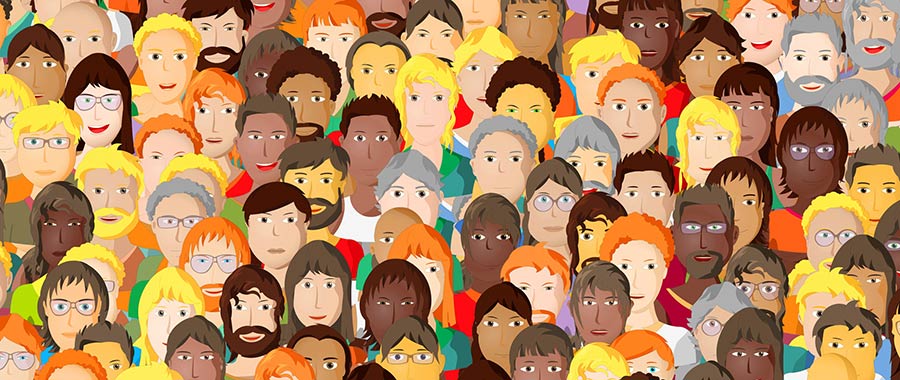In the contemporary milieu, the concept of community has evolved to encompass a myriad of interpretations, prompted by globalization, technological advances, and social stratification. The Bahá’í teachings, with their profound emphasis on harmony and unity, offer a robust framework for fostering community through social development. This perspective invites individuals and groups to reconsider the essence of community not merely as a geographical or demographical entity but as an intricate tapestry of shared values, collaborative endeavors, and mutual upliftment.
At the heart of the Bahá’í perspective lies the conviction that genuine community cannot thrive in isolation. Instead, it emerges through the concerted efforts of individuals dedicated to the broader welfare of humanity. This paradigm shift prompts a reevaluation of individual roles within society, encouraging an amalgamation of personal aspirations with communal goals. Social development, therefore, transcends basic charity; it is a holistic process that integrates spiritual and material advancements.
Social development, in the context of Bahá’í teachings, is not a mere accumulation of resources but rather an evolving narrative that emphasizes the cultivation of human potential. This approach is predicated on the principle that each individual possesses inherent nobility and capacity for growth. Empowerment emerges when individuals recognize their value and seek to contribute to societal betterment. The Bahá’í view posits that when individuals engage in communal activities that foster learning and collaboration, they nurture an environment conducive to the flourishing of collective capacities.
Moreover, the emphasis on unity underscores the necessity for inclusivity in social development efforts. Bahá’í teachings advocate for the dissolution of prejudices—be they racial, gender-based, or socioeconomic—to cultivate a sense of belonging among diverse groups. This imperative can engender a resonance of cooperation that strengthens societal bonds. It compels each member of the community to acknowledge the merits and perspectives of others, ultimately fostering an atmosphere ripe for creativity and collaborative problem-solving.
Engagement at the grassroots level represents a pivotal aspect of Bahá’í social development initiatives. These initiatives are often executed through local community-building efforts, where individuals are encouraged to undertake collective action. Activities range from educational programs to health initiatives, all aimed at instilling a sense of agency among participants. Such endeavors highlight the potential of every community to serve as a microcosm of a larger and more interconnected world, reinforcing the notion that local actions can culminate in significant global impact.
The integration of spiritual principles in social development projects further delineates the Bahá’í approach from conventional models. The belief in the oneness of humanity serves as the cornerstone of this integration. When individuals commit to fostering unity within their communities, they align their efforts with the broader goal of promoting global cohesion. This alignment is transformative, as it invites communities to undertake initiatives that not only address immediate needs but also cultivate an ethos of collaboration, spiritual growth, and mutual respect.
Furthermore, the Bahá’í framework delineates the importance of education as a fundamental vehicle for social development and community building. Education, viewed through a Bahá’í lens, is not solely the transfer of knowledge; it is a comprehensive process aimed at developing the moral and intellectual capabilities of individuals. The Bahá’í community places special emphasis on the education of children and youth, recognizing that they embody the future of humanity. When communities invest in the holistic education of their younger members, they lay a foundation for sustainable development and social progress.
On a broader scale, this educational impetus aligns with the principles of justice and equity, as all individuals—regardless of their backgrounds—should have access to opportunities for advancement. By addressing systemic inequalities through education and community engagement, Bahá’í principles contribute to the dismantling of barriers that hinder collective progress.
The promotion of service-oriented actions, infused with a spirit of altruism, further amplifies the impact of community building. The Bahá’í teachings encourage individuals to pursue activities that prioritize the common good over self-interest. This altruistic perspective breeds a culture of service, prompting individuals to reimagine their role in society as one of contribution rather than consumption. As people begin to engage with their communities through the lens of service, they cultivate relationships grounded in trust and solidarity.
Moreover, contemporary challenges—such as climate change, socio-economic disparities, and health crises—underscore the urgency of collaborative solutions. The Bahá’í approach to social development resonates profoundly in this context, as it calls upon humankind to unite in the face of adversity. Each act of social development can be perceived as a step toward global peace, as communal efforts based on shared ideals and mutual respect can foster resilience in societies worldwide.
Ultimately, the promise of Bahá’í teachings—especially in the realm of social development and community building—invites collective transformation. This transformation arises not merely from the physical resources allocated to development projects but from the profound changes in hearts and minds that can emerge when individuals come together with a shared vision for a more equitable and harmonious world.
In conclusion, the Bahá’í teachings provide an enchanting and profound narrative on community building through social development. By fostering unity, promoting inclusivity, and emphasizing the significance of education and service, these teachings offer a unique lens through which to understand the complexities of modern social dynamics. As we explore and implement these principles, we not only enrich our own lives but also create a legacy of hope and possibility for future generations.
